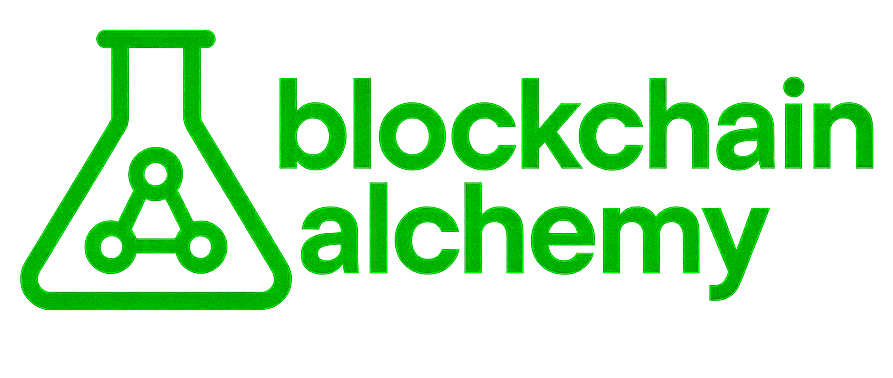To generate revenue from a specific assignment, focus on freelance contracts that offer fixed payments upon completion. These short-term engagements allow you to secure payment without long-term commitments, making them ideal for supplementing your regular job or testing new skills.
Identifying tasks with clear deliverables and deadlines is crucial. A well-defined contract helps avoid ambiguity, ensuring you understand the scope and compensation before starting work. This approach guarantees that your effort translates directly into tangible rewards.
Platforms catering to freelance professionals list numerous gigs ranging from design and writing to software development and consulting. Selecting projects that match your expertise maximizes efficiency and boosts earning potential within a limited timeframe.
Tracking deadlines and maintaining communication with clients throughout the contract period fosters trust and can lead to repeated offers or referrals. Efficient management of these assignments makes it easier to balance multiple income streams while expanding your professional portfolio.
One-Time Side Jobs in Blockchain: Practical Ways to Boost Your Revenue
Engaging in specific freelance tasks within blockchain projects can generate supplementary revenue streams without long-term commitments. For instance, performing smart contract audits or participating in bug bounty programs offer clearly defined jobs that pay upon successful completion. These assignments require technical expertise but provide immediate financial rewards, making them ideal for those seeking flexible engagements.
Another viable approach involves contributing to decentralized finance (DeFi) platforms by providing liquidity or participating in governance proposals. While these activities often come with fixed timeframes and conditions, they result in distinct payouts rather than continuous compensation. Understanding the precise requirements and risk profiles of such roles is essential for maximizing returns effectively.
Technical Tasks with Immediate Compensation
Coding small modules, creating blockchain-related content, or developing tools like wallet integrations are examples of freelance work that yield single-payment transactions. Platforms such as Gitcoin facilitate matching developers with projects needing specific deliverables, thus opening doors to straightforward assignments. This kind of work suits professionals balancing other commitments since it avoids ongoing responsibilities.
Testing decentralized applications (dApps) under testnet environments also offers targeted remuneration opportunities. Testers can earn tokens or fiat currency by identifying bugs, usability issues, or verifying functionality before public release. The specificity of these jobs ensures a clear scope and timely reward distribution, which is crucial when planning side income activities.
- Bug bounties: Rewards vary depending on vulnerability severity and project scale.
- Freelance development: Fixed-price contracts based on deliverables and timelines.
- Content creation: Paid per article or video explaining blockchain concepts.
- dApp testing: Compensation linked to issue reports and validation tasks.
The key factor enabling success in these short-term engagements lies in selecting assignments aligned with your skill set while ensuring clarity regarding payment terms and deadlines. Engaging actively on specialized job boards and communities will increase access to relevant gigs offering fair remuneration for completed work.
A balanced combination of technical proficiency and strategic task selection will enhance your ability to capitalize on non-recurring engagements efficiently. Continuous skill development paired with proactive networking within blockchain freelancing platforms ensures sustained access to lucrative short-duration projects that supplement your primary job without excessive time investment.
Finding Short-Term Freelance Gigs
Locating freelance contracts that provide immediate compensation requires targeting platforms and networks known for rapid task allocation and payment. Websites like Upwork, Freelancer, and specialized blockchain job boards offer numerous short-duration assignments ranging from coding smart contracts to creating technical documentation. Prioritizing clear project scopes and fixed-price arrangements ensures predictable financial returns without long-term commitments.
Freelancers should evaluate each contract’s deliverables and timelines meticulously to avoid scope creep and delayed remuneration. Analyzing client ratings and previous job feedback can help in selecting reliable engagements that guarantee prompt settlement. Employing escrow services available on many platforms further safeguards against payment issues, making these gigs a secure source of additional revenue.
Identifying Suitable Tasks for Quick Completion
Tasks amenable to rapid completion typically include bug fixes in decentralized applications, writing brief whitepapers, or conducting audits of small-scale smart contracts. For instance, a developer might accept a contract to optimize a Solidity function within 48 hours, receiving payment upon submission. Such roles are ideal for professionals seeking bursts of activity followed by downtime without ongoing obligations.
Another practical example involves content creators producing concise educational videos or blog posts about blockchain concepts. These jobs often have predefined word counts or runtimes, enabling freelancers to allocate precise effort spans while ensuring quality output. By focusing on assignments with measurable outcomes, freelancers can efficiently manage multiple contracts within limited timeframes.
- Technical Writing: Summarizing protocol updates or explaining tokenomics models concisely.
- Code Review: Performing quick assessments of newly deployed smart contracts for security vulnerabilities.
- Data Analysis: Extracting transaction patterns from blockchain explorers for market insights.
Diversifying skill application across such tasks not only boosts income but also expands professional portfolios, enhancing chances for future work offers with similar short engagement periods. This approach supports sustained financial inflows without the need for continuous employment commitments.
The key to maximizing benefits from such engagements lies in maintaining a robust profile showcasing relevant skills along with verified client endorsements. Regularly updating portfolios with completed assignments demonstrates reliability and expertise, attracting more frequent offers aligned with one-off collaboration preferences.
Cultivating efficient communication habits during negotiations helps clarify expectations regarding deadlines and payments upfront. Establishing these conditions reduces misunderstandings and fosters positive client relationships conducive to repeat short-term tasks or referrals within niche blockchain communities.
A balanced strategy combining targeted platform use, skill diversification, and proactive networking enables freelancers to capitalize on transient but lucrative contracts effectively. This method ensures steady supplementary revenues while allowing flexibility uncommon in traditional employment arrangements.
Monetizing Digital Content Quickly
To generate immediate revenue from digital content, leveraging freelance contracts designed for specific deliverables is one of the most effective approaches. Such agreements allow creators to focus on well-defined tasks with clear deadlines, ensuring swift compensation upon completion. For example, platforms like Upwork and Fiverr facilitate connections between clients and freelancers seeking short-term assignments, enabling quick financial returns without long-term commitments.
Another practical method involves licensing digital assets under single-use contracts. This permits buyers to utilize content in a limited scope, such as a one-off marketing campaign or exclusive publication. Blockchain technology enhances this process by embedding smart contracts that automatically enforce terms and release payments when conditions are met, reducing delays and disputes associated with manual invoicing.
Examples of Rapid Monetization Strategies
Content creators can capitalize on specific projects like creating NFTs (non-fungible tokens) representing unique digital art pieces or limited-edition music tracks. Selling these through decentralized marketplaces generates immediate proceeds after the transaction finalizes on-chain. Additionally, freelance writers producing whitepapers or technical documentation for blockchain startups often secure lump-sum fees linked to contract milestones rather than ongoing royalties.
The integration of automated payment protocols in blockchain ecosystems further streamlines monetization by minimizing intermediaries and accelerating fund transfers. Consequently, professionals delivering tailored digital solutions–be it code snippets, UX designs, or consultancy reports–can realize prompt financial benefits aligned precisely with project requirements without extended waiting periods typical of traditional billing cycles.
Leveraging Local Event Participation
Engaging in local blockchain and cryptocurrency events presents unique chances to secure freelance contracts that generate supplemental revenue streams. These engagements often involve specific tasks such as live reporting, technical consultation, or workshop facilitation, which are typically short-term jobs with clear deliverables. By targeting these roles, individuals can diversify their portfolio while capitalizing on situational demands that arise around conferences, hackathons, or meetups.
Such temporary assignments usually require specialized knowledge but offer immediate financial rewards upon completion. For example, a blockchain developer might be contracted to audit a startup’s smart contract during an event weekend. This not only provides direct compensation but also adds valuable case experience for future bids on similar gigs. Understanding the event’s scope and aligning skills accordingly increases chances of selection for these lucrative engagements.
Strategies to Maximize Returns from Event-Based Contracts
To optimize outcomes when participating in event-related tasks, preparation is key. Thoroughly researching upcoming local crypto gatherings enables timely application for relevant freelance positions before they are filled. Platforms like Upwork or specialized blockchain job boards often list such opportunities alongside official event channels promoting collaboration requests.
- Identify roles with clear objectives: Roles like content creation, live translation of technical sessions, or security assessments provide measurable outputs.
- Set concise deliverables: Defining scope upfront prevents scope creep and ensures swift project closure.
- Leverage networking: Connections formed during events can lead to referrals for future short-duration contracts.
An illustrative case involves a freelance blockchain analyst hired at a regional conference to prepare daily market summaries distributed to attendees. The analyst completed this task over three days under a fixed-fee contract, generating significant immediate earnings without long-term obligations.
Another approach entails offering real-time troubleshooting or advisory services on emerging decentralized applications showcased during events. Specialists who position themselves as on-call experts capture sporadic yet high-value jobs. Incorporating flexible availability into one’s freelance profile signals readiness to engage in such episodic assignments.
The ability to quickly adapt skills for targeted assignments at local events enhances financial returns without necessitating prolonged commitments. Combining technical expertise with proactive engagement in community activities creates pathways for occasional yet profitable engagements that contribute meaningfully to overall remuneration portfolios within the blockchain ecosystem.
Conclusion: Maximizing Freelance Earnings Through Handcrafted Product Sales
Leveraging handcrafted product sales as a freelance endeavor allows individuals to secure specific, contract-based revenue streams that complement more traditional jobs. This model enables creators to capitalize on unique projects without long-term commitments, making it ideal for those seeking flexible, task-oriented financial gains.
Technically, integrating blockchain-driven smart contracts can further enhance trust and transparency in these transactions by automating payment releases upon job completion. Such innovations reduce risks associated with freelance work and open pathways for decentralized marketplaces tailored to artisans.
Key Takeaways and Future Directions
- Contract specificity: Clear definitions of deliverables within each job minimize disputes and ensure timely compensation.
- Payment automation: Utilizing blockchain-based escrow systems can streamline income flow from individual assignments.
- Diversification: Combining multiple distinct projects offers a resilient revenue mix beyond conventional employment.
- Platform evolution: Emerging decentralized platforms will likely expand access to niche markets for handcrafted goods globally.
The growing synergy between freelance craftsmanship and blockchain technology promises enhanced security for sellers handling isolated contracts. By embracing these advances, artisans can confidently engage in varied tasks while optimizing their short-term financial outcomes through reliable, project-specific engagements.





